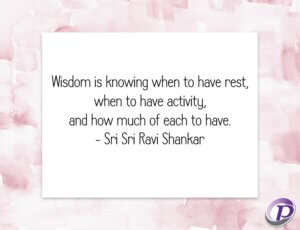
1 min readActivate Your Recovery
by Guy Gage | October 31, 2021 | Business, Leadership, Performance, Personal Management

Recovery Is Intentional
A couple of weeks ago, this Monday Message emphasized how important it is to have a recovery plan in place following a high-intensity period. The best performers in any discipline know the importance of recovery and make it a regular part of their routine. This is especially important for everyone aspiring to lead effectively.
In response to that Message, one of my readers wrote, “I have never even thought of recovery time after an intense period (other than staying out of the office for the next weekend).” (see his full statement below). It got me to wondering if it would be helpful to bring more clarity to a recovery plan for those in professional service.
An effective recovery process doesn’t mean you sit on the sofa, unshowered for 3 days, while binge-watching Netflix. The recovery is physical and mental. Your brain and body repair themselves, naturally. But you have to create the time and space for it to do so. Here are two ways you activate your recovery due to high intensity.
Increase blood flow
Getting good blood flow throughout your body and brain is healing in itself. It removes the toxins built up from high intensity. I remember it was at the beginning of April and a tax partner remarked that he just wanted to mow the grass and sweat a little bit.
While exercise is important, anything you can do that increases your blood flow is healing. Go for a healthy-paced walk, not a stroll. Not a lot of effort, no sweat. Just blood coursing through your veins, cleaning out the contaminants you’ve build up. Even stretching is good.
Clear Your Mind
When you were in the high-intensity, compression cycle, you were on hyper alert. Your “fight or flight” mechanism (amygdala) was turned on and you found it difficult to turn it off. Now that you don’t need to by on hyper alert, you have to manually calm down your brain. The primary way to do so is stimulate your neuro pathways differently to induce a more relaxed, less hyper vigilant mental state. Sit quietly and pay attention to your breathing. Meditate on sacred literature. Practice yoga. The key is to intentionally slow down your frenetic mental activity.
These two practices of increasing your blood flow and clearing your mind will activate your recovery. But you have to create the time and space to redirect your attention.
And that’s how you activate your recovery.
Read Related Blogs:
Igniting the Spark
In February, a senior manager attended our Leading Your Team course. The program explores how managers can better understand and lead their team members by recognizing different working and relational styles. For him, this experience marked a turning point. He walked...
Leading with Certainty: Anchoring Leadership in Vision and Values
Effective leadership is grounded in the certainty of what is known: the long-term vision, enduring values, and guiding principles that define an organization’s identity. In a recent coaching conversation with a senior leader navigating a period of rapid change, this...
Courageous Leadership: Understanding Fear in Times of Change
In the midst of writing last week’s Monday message, I was preparing to facilitate a session titled Courageous Leadership: Navigating Change, Fear, and Uncertainty. During that session, one of the attendees questioned the use of the term fear. She didn’t feel that fear...



